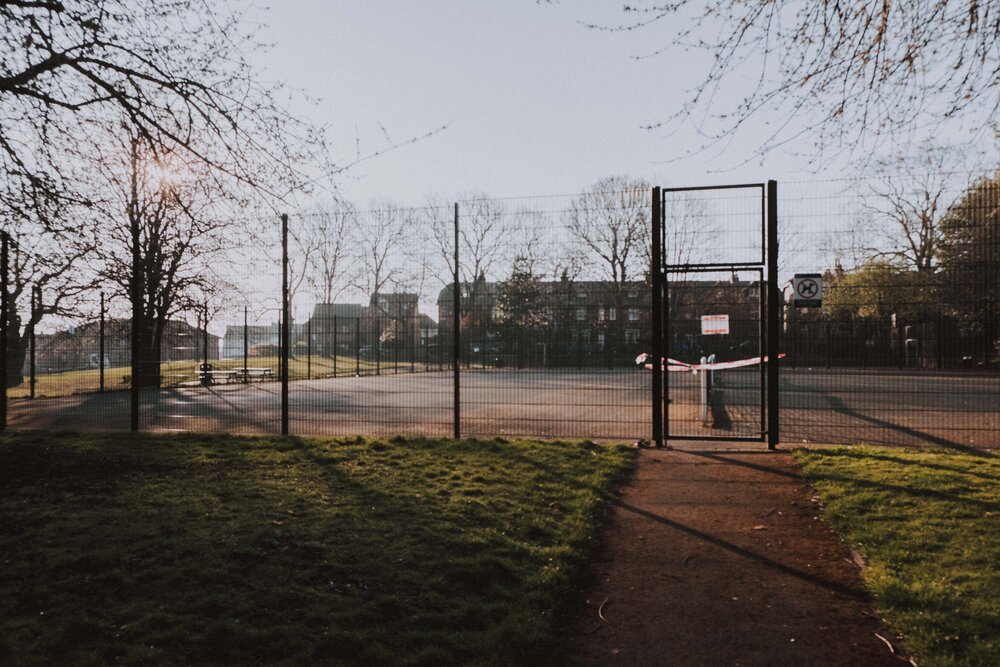Where I live, we’ve been in coronavirus lockdown for weeks. It’s the same for much of the world. And counting the days, it’s been a long time.
A long time without being near friends and family
A long time without some of our favorite activities
A long time away from our community of faith
With the lockdown now lasting longer than forty days, I’m reminded of the significance of the forty-day period in the Bible. It’s a long time. This experience has deepened my understanding. Here are four gospel-related Bible accounts that are now more meaningful to me.
1. Forty Days on Mt. Sinai
Exodus 24 tells us that Moses was on the mountain for forty days and forty nights. That’s a long time. Without their leader, the people were left waiting. I can better imagine why they began to fear that Moses was dead and feel their hopes of the Promised Land fading. We see they responded to that fear by building the golden calf and worshipping it instead of the LORD (Exodus 32:1-6).
This long time in lockdown has aroused idolatrous fears for me too. I’m tempted to worship things other than God: security, finances, comfort. In the end, I’m not very different from the people at the foot of the mountain.
2. Forty Days of Rain
According to Genesis 7, God sent rain on the earth for forty days and forty nights. That’s a long time. During this time, every living thing on land was destroyed because of how corrupt people had become. In his holy wrath against sin, God flooded the world.
But let us never think that we are any better than the people of Noah’s time. With our corruption and wickedness, our generation deserves the same kind of wrath (Genesis 8:21). Despite our technological advances, our world is still full of sin. It is only because God is keeping his promise that our corrupt world will never be flooded again (Genesis 9:15).
Also, while we consider how much longer we will be in lockdown, consider that Noah and his family were stuck in the ark for about a year (Genesis 7:11; 8:13-20).
3. Forty Days of Fasting in the Wilderness
Jesus ate nothing in the wilderness for forty days (Matthew 4:2; Luke 4:2). That’s a long time. During the lockdown, I’ve been complaining about businesses being closed, inability to meet with people, and trying to get a grocery delivery. But compared to the deprivation of Jesus, my inconveniences are minor. He had no food and human contact (as far as the text indicates) for forty days.
Yet even in his desperate 40-day need, Jesus didn’t succumb to temptation. In the face of the devil’s tantalizing propositions, Jesus didn’t sin (Hebrews 4:15).
Why is Jesus’ sinlessness important? Jesus had to be sinless for his death on the cross to be effective for us. Jesus, who had no sin, became sin in order for us to become the righteousness of God (2 Corinthians 5:21). Being without sin, he offered himself once and for all for us (Hebrews 7:26-27).
When I think about Jesus’ long time in the desert, I realize how desperate he must’ve become. Yet in the face of this need, he remained without sin. He accomplished what I didn’t and couldn’t. Because of His sinlessness, His death on the cross was able to be the perfect sacrifice to save you and me.
4. Forty Days of Resurrection Appearances
After Jesus rose from the dead, he appeared to people for forty days (Acts 1:3). That’s a long time. He appeared to Peter, and then to the Twelve; he appeared to over five hundred brothers at once; he appeared to James and Paul. Most of these eyewitnesses were still alive at the writing of 1 Corinthians (15:5-8), and they were able to corroborate the account.
Why is this 40-day period important? During the long period, Jesus appeared to many eyewitnesses, in part so that they could verify what they had seen and touched (Luke 24:39-40; 1 John 1:1).
All the legitimacy of the Christian faith relies on Jesus’ bodily resurrection being a historical event. Paul tells us that if Jesus had not been raised, our faith is useless. If the resurrection didn’t happen, we are still in our sins and are destroyed; we have no hope and should be pitied (1 Corinthians 15:13-19).
But Christ has been raised. Because of his resurrection, we have hope beyond physical death. His mastery over death means that we who are united with him will also be raised to eternal life, free from sin (Romans 6:7-9; 1 Corinthians 15:21-22).
Forty days is a long time. It reminds me of my deep corruption and how my wickedness deserves destruction. It also reminds me of the sinlessness of Jesus despite his desperation. His death and repeatedly-witnessed resurrection give us hope beyond this life.

